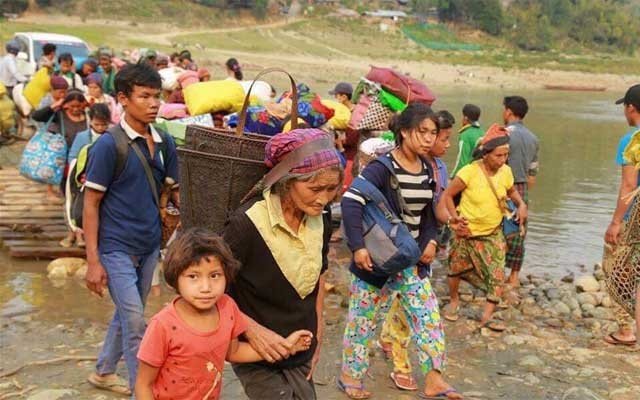In Myanmar this indigenous Christian community is suffering from oppression and oppression

According to the BBC, the United Nations said that about 4,000 people have been forced to leave their homes in the provinces of China and India from the beginning of April.
Reuters reported that civil society groups of Kitchin-based civil society groups have alleged that the army and Kitchin rebels have started their fight in the beginning of this month.
Since the ceasefire that lasted 17 years in 2011, the mountainous area of Myanmar's most influential rebel group, the Kishan Independence Army (KIA), has been regularly clashing with Myanmar government forces.
On Friday, a KIA spokesman told Reuters that the rebel group could become more intense in Myanmar government forces.
Analysts fear that the humanitarian situation in the area could be more vulnerable.
Kia's spokesman, Colonel Noe Bu said that in order to fight KIA, the Myanmar military has sent two thousand infantry, warships and helicopters to the region, and nine out of 18 city cities have reported clashes between the two sides.
He said, "The army is sending more troops from the lower level of Myanmar and that is why the fight will become even more intense. This will increase the number of refugees and they may face further adversity. "
Since the 1960s the Kitchin soldiers started fighting against the government, the clash has 'taken the toughest form'.
As many thousands of people are displaced as well as many others are believed to be stranded in confined areas. The relief agencies have called on the Myanmar government to enter these areas.
"We are most concerned about the safety of the civilians; Those of whom are pregnant women, old people, children and disabled people, "said Mark Cutts, head of the Office of the Coordination of Humanitarian Affairs (OCHA).
In addition to the Rohingya crisis in the southwest, several tribal minorities in the northern region are facing conflict with Myanmar government. Buddhist chief Myanmar minority kitschins are mainly Christians. They have been fighting against the government of Myanmar since 1961 to demand more autonomy for their territories.
In this fight, nearly 1,20,000 people have been displaced in Kichin and other northern states.
In the last six decades, the Myanmar government followed the peace treaty with other indigenous insurgent groups, but they continued to fight with a relatively strong KIA.
Rights activist groups have said that only after the world's attention towards Myanmar's Rohingya crisis, the Myanmar army has strengthened the campaign against the Kichins when only seven million Rohingyas fled to Bangladesh due to the crisis.
In a report last month, UNHR accused Cincinnati of serious human rights violations, including offenses such as extrajudicial killings, extortion and sexual violence.
Aung San Suu Kyi has been widely criticized worldwide due to its failure to prevent human rights violations in Myanmar and limited access to humanitarian relief in the country.
The United Nations urges the authorities of the United Nations to stop the dismissal of Kitchin reporting human rights violations.